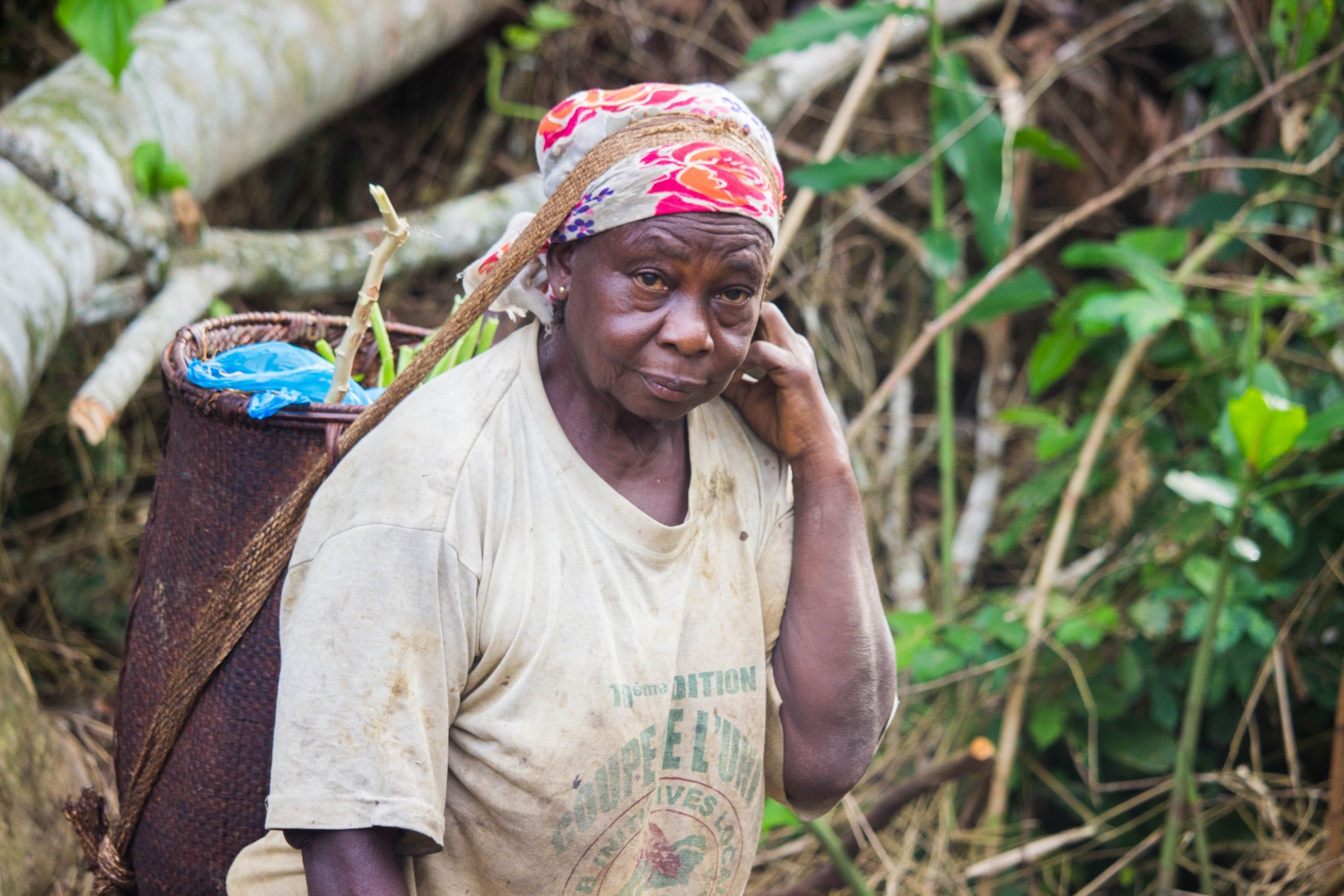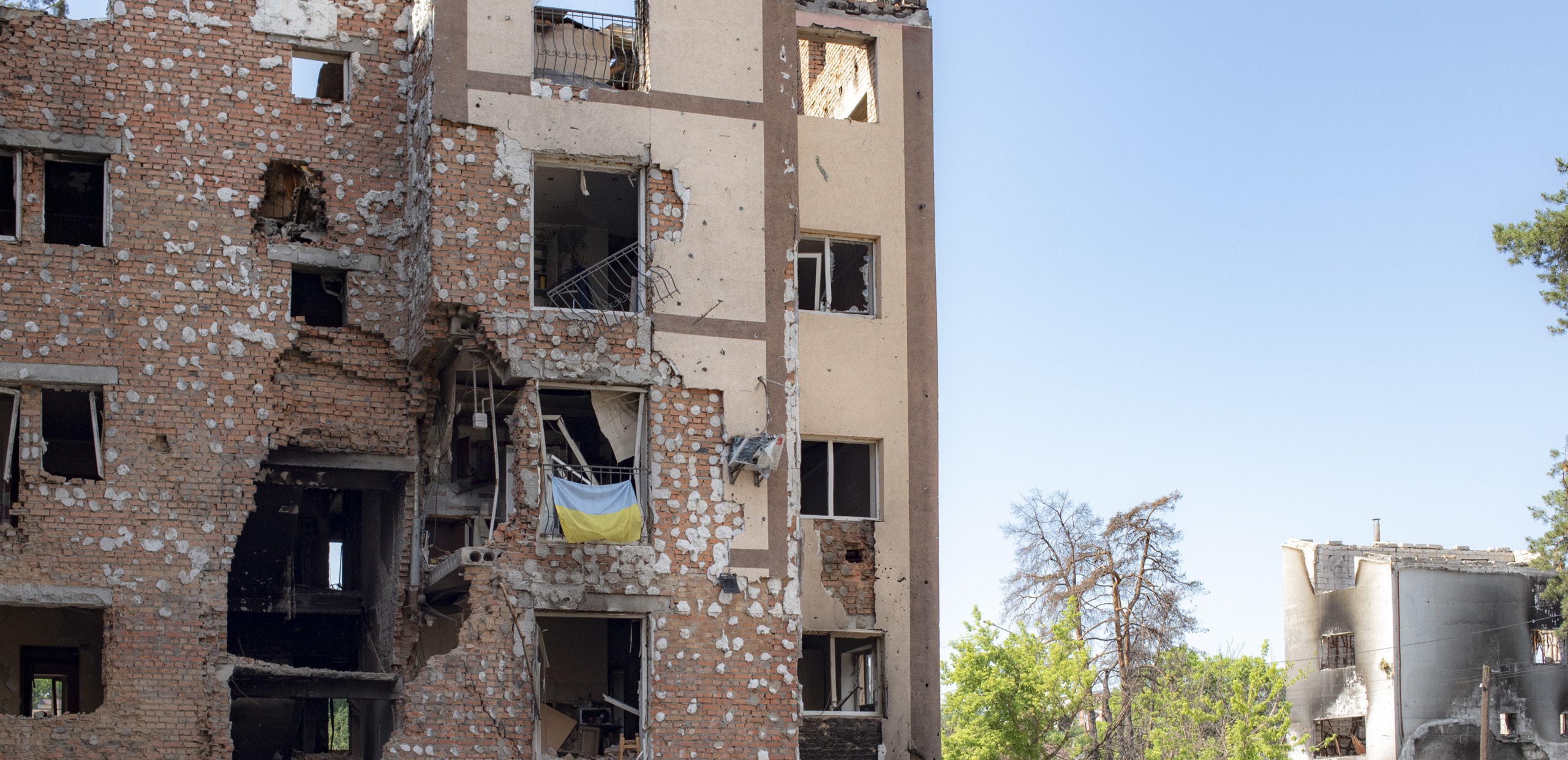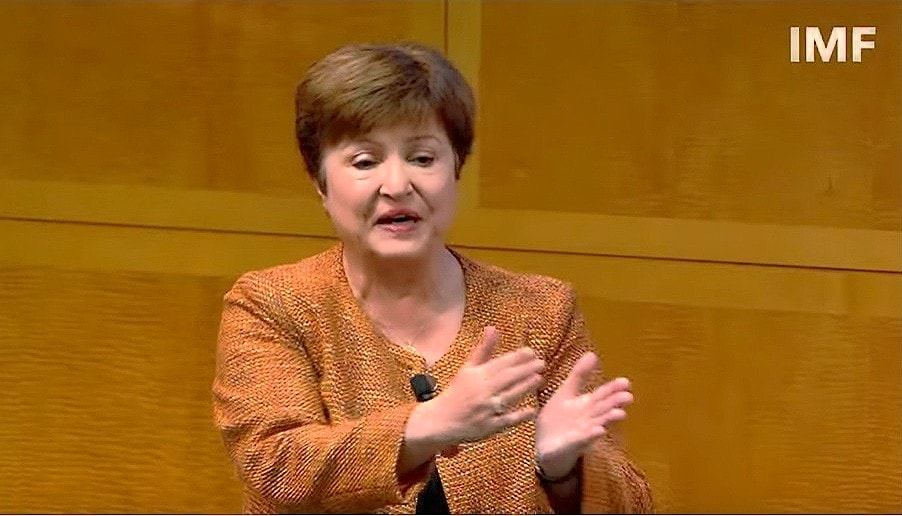On November 23, the International Monetary Fund (IMF) announced that it had responded to a Ukrainian request to have a four-month Program Monitoring with Board Involvement (PMB) to support their economic program, anchor macroeconomic policies, and pave the way to a fully-fledged IMF program.
An agreement on the PMB proposal was reached after virtual discussions were held with the Ukrainian authorities from November 11 to 22 to discuss the key elements of their program. The IMF team, led by Mr. Gavin Gray met with Finance Minister Marchenko, NBU Governor Pyshnyy and other senior public officials.
This is an important step forward for Ukraine as Russia’s invasion continues unabated with devastating missile strikes against the civilian population and infrastructure. Zelensky addressed the United Nations Security Council yesterday accusing Russia of crimes against humanity, waging a form of “energy terror” killing 11 civilians in its latest strikes:
The main economic policy challenge facing the Ukrainian authorities is to ensure adequate resources for core functions of the state while continuing to preserve macroeconomic stability.
Ukraine also needs to plan for reconstruction and that requires further catalyzing donor support.
The challenges, as might be expected of a country at war, are many:
(i) boost tax revenues and revive the domestic bond market;
(ii) contain monetary financing;
(iii) contribute to the long-term stability of the financial sector; and
(iv) enhance governance and transparency.
And the proposed PMB includes policies and measures to precisely address the above four points.
Unquestionably, an IMF monitoring role and advisory support would provide Ukraine with the kind of “imprimatur” that donors would welcome.
This is especially important for Ukraine’s future as Ukraine in the past has suffered from a lack of transparency and repeated accusations of systemic corruption, including at the highest levels of government.
In 2019, when Zelensky (who was not a politician but a comedian) arrived on the political scene, he promised to tackle corruption. A big challenge after 28 years of corrupt politics; in his inaugural speech, he said:
“Let’s build a country of other opportunities. Where everybody is equal before the law and where the rules of the game are honest and transparent, that are the same for everyone.”
Furthermore, it is expected that strong implementation of the PMB with full IMF involvement would help pave the way toward a full-fledged IMF-supported Program in the future.
At the conclusion of the talks with Ukrainian authorities, Mr. Gray announced a staff-level agreement on the proposed PMB had been reached, and that it was now subject to approval by IMF Management.
An IMF Executive Board discussion is expected in the coming weeks.
What can be expected of the proposed PMB
Mr. Gray, in his statement, first pointed to the urgency of the proposed PMB in light of the economic and human challenges Ukraine is currently facing. It will require “substantial external financing”, he said, just to keep public services functioning:
“The war continues to have a devasting social and economic impact on Ukraine, involving substantial civilian deaths, the relocation of more than a third of the population through migration or internal displacement, and colossal damage to infrastructure and productive capacity. Economic activity is expected to stabilize in 2023, with growth at 1 percent under the baseline scenario, following a 33 percent contraction this year. Inflation is projected to remain elevated at around 25 percent on average. With the war ongoing, Ukraine will continue to require substantial external financing to ensure adequate resources for the core functions of the state while preserving economic stability.”
He also noted that Ukraine’s budget was prudential, focused on a “very tight expenditure envelope”:
“The authorities’ budget for 2023 features a very tight expenditure envelope in view of the significant financing constraints. To help create fiscal space, the authorities intend to take measures to boost tax revenues including through restoring pre-war tax administration practices. New measures that might erode tax revenues will be avoided.”
And that the goal would also require “concerted efforts to mobilize domestic financing through higher rollover rates on the domestic market against a backdrop of ample liquidity”.
As regards monetary and exchange rate policies, he praised both the government authorities for continuing to “carefully monitor developments, manage liquidity, and balance the foreign exchange market” while also being fully committed to “upholding the independence and institutional effectiveness” of the National Bank of Ukraine (NBU).
He concluded that:
“Renewed efforts are needed toward cementing good corporate governance practices in state-owned enterprises and banks and ensuring the independence of their supervisory boards. The preservation of independent, competent, and trustworthy anti-corruption institutions is essential.”
The IMF could play a decisive role in Ukraine’s reconstruction
There is no doubt that with the IMF as a possible ‘guarantor’, Ukraine should have an easier time raising the needed funds for its reconstruction.
IMF involvement would be coming at the right moment politically, following up on the Ukraine Recovery Conference held in Lugano, Switzerland, in July 2022 where over 40 countries – the EU members but also the US, UK, Australia and Japan – sighed the Lugano Declaration:
At that time, four months ago, Ukraine told the conference that it estimated the cost of recovery at some $750 billion. In September, the World Bank put forward a lower estimate, some $349 billion, still a huge sum. Whatever the ultimate cost will be, it is certain to be enormous, and all the greater, the longer the war lasts.
There is no question that Ukraine will need all the help it can get and the role of the IMF could be decisive.
Editor’s Note: The opinions expressed here by the authors are their own, not those of Impakter.com — In the Featured Photo: A handout photo made available by the Swiss federal Foreign ministry FDFA shows Ukrainian Prime Minister Denys Shmyhal speaks with footage from the war projected on the screen during a plenary session at the Ukraine Recovery Conference URC, in Lugano, Switzerland, 4 July 2022. The URC is organised to initiate the political process for the recovery of Ukraine after the attack of Russia to its territory. [Handout photo/EPA/EFE]














